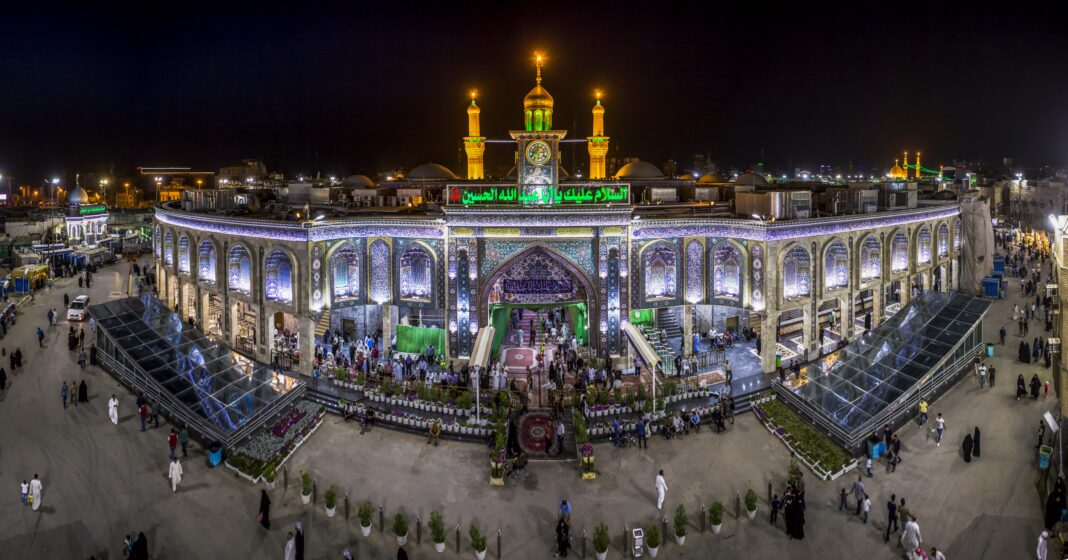the Holy Shrine in Karbala issued a detailed list of Arbaeen Processions Guidelines to manage the growing number of participating mourning groups. These new regulations, released on Saturday, aim to ensure safety, cleanliness, and religious authenticity during the Arbaeen pilgrimage.
Each procession must maintain a clean environment. Organizers must place waste bins near service areas and monitor hygiene during cooking and animal slaughter. These steps reduce pollution and protect public health.
Authorities require all processions to follow a fixed schedule. Groups of Dha’n must march on 14 and 15 Safar, Zanjil on 16 and 17, and Latm on 18 and 19. Pilgrims dedicate the 20th of Safar only to visitation. Activities must start after 6:00 a.m. and finish before midnight.
Officials assigned one unified mourning group per province. Once a province finishes its procession, it must exit immediately to prevent overlap. Organizers must also follow a specific route: starting from Imam Hussein’s gate, passing through the shrine, crossing the inter-shrine area, and ending at Abbas’s gate.
Procession leaders must create emergency exits inside tents. They must avoid blocking roads, harming public gardens, or cutting trees. Officials emphasized preserving public property at all times.
Religious leaders urged organizers to respect traditional mourning styles. They banned newly introduced rituals like “Shour” and insisted on Iraqi-style recitations. Organizers must also follow sound equipment rules—keeping speaker sizes and numbers within limits. Additionally, they must mute all loudspeakers during prayer calls.
To reduce risks from extreme heat, shrine officials banned cooking around the sacred shrines. Men’s processions must not include women. Every group must equip fire extinguishers and test them before setup.
Security teams ordered procession leaders to prevent strangers from entering their groups. Leaders must show permits and ID cards at shrine checkpoints. They must also report suspicious activity immediately.
Officials strictly banned sharp tools, firearms, and banners showing political or sectarian symbols. They also restricted signs and sticks unrelated to Arbaeen rituals. After completing their ceremonies, groups must remove all structures and debris.
Health authorities required all mourners to follow current health guidelines. They also prohibited off-topic reenactments, like carrying severed heads or fake bodies. Security teams will block any violators from entering shrine zones.
Ultimately, the Arbaeen Processions Guidelines reflect the shrine’s dedication to order, safety, and spiritual focus. With these rules, the holy sites can host millions of pilgrims while preserving the sanctity of Arbaeen.
By promoting discipline and unity, the Holy Shrine ensures every mourner experiences a peaceful, organized, and spiritually fulfilling pilgrimage. As Arbaeen approaches, the Arbaeen Processions Guidelines will protect traditions and enhance the sacred journey for all.



